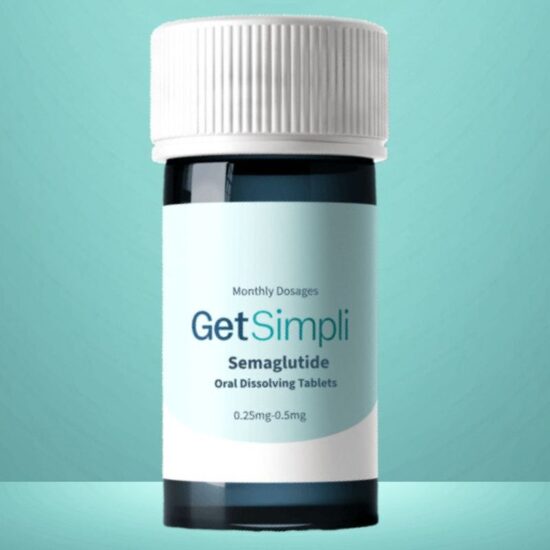$1,300.00
Discover Amgen MariTide, a groundbreaking monthly weight loss drug designed to help you achieve your health goals. In a recent trial, participants lost up to 20% of their body weight with ease. Featuring a unique formulation that combines GLP-1 technology with a monoclonal antibody, MariTide offers extended efficacy and convenience—no more weekly injections! Ideal for those struggling with obesity or Type 2 diabetes, this innovative treatment not only promotes significant weight loss but also improves key health markers. Choose MariTide for a simpler, more effective path to a healthier you!
Description
Obesity affects more than 650 million adults worldwide. It is recognized not just as a cosmetic concern but as a chronic health condition that significantly raises the risk for heart disease, diabetes, high blood pressure, and various cancers. In recent years, advancements in obesity pharmacotherapy have introduced effective treatments, particularly GLP-1 receptor agonists such as semaglutide (Ozempic, Wegovy) and tirzepatide (Mounjaro, Zepbound). Despite their effectiveness, these medications typically require weekly administration and may be associated with challenging gastrointestinal side effects.
Amgen introduces a promising alternative: MariTide (maridebart cafraglutide). This once-monthly injectable medication is engineered to provide substantial weight loss benefits with fewer disruptions to daily life. Supported by robust Phase 2 trial data and advanced molecular engineering, MariTide signals a potential paradigm shift in obesity and metabolic disorder treatment.
This article delves into MariTide’s innovative mechanism, clinical trial performance, safety profile, how it compares to current therapies, and its anticipated role in the future of metabolic healthcare.
1. Understanding Amgen MariTide
MariTide (maridebart cafraglutide) is a novel biologic developed by Amgen, belonging to the GLP-1 agonist class of drugs known for their effects on appetite suppression and metabolic regulation. What distinguishes MariTide is its unique dual-action mechanism and its extended dosing interval, requiring only a single monthly injection.
1.1 Molecular Design
MariTide integrates three critical components:
- GLP-1 Receptor Agonism: Simulates the natural hormone GLP-1 to curb appetite, delay gastric emptying, and stimulate insulin release.
- GIP Receptor Antagonism: Inhibits the glucose-dependent insulinotropic polypeptide receptor to mitigate fat storage and enhance metabolic function.
- Monoclonal Antibody Conjugation: Extends the medication's half-life, making monthly dosing feasible and effective.
2. Clinical Trial Insights
2.1 Phase 2 Study Summary
Presented at the 2025 American Diabetes Association conference and published in the New England Journal of Medicine, Amgen’s Phase 2 trial tested MariTide in over 570 adults with overweight or obesity, with or without Type 2 diabetes, over a 52-week period.
2.2 Efficacy Results
The trial yielded significant weight reduction outcomes:
- Non-diabetic participants experienced a 15% to 20% loss in body weight, depending on dosage.
- Participants with Type 2 diabetes achieved up to 17% weight loss, notable given the metabolic challenges in this group.
MariTide’s results place it among the most effective treatments for obesity, potentially surpassing established therapies like tirzepatide and semaglutide.
2.3 Additional Health Benefits
Beyond weight reduction, the drug also improved key health markers:
- HbA1c reduction of up to 2.2 percentage points
- Normalized blood pressure levels
- Improved sleep apnea symptoms
- Relief from joint discomfort, likely linked to weight reduction and systemic anti-inflammatory effects
3. Mechanism of Action: What Sets MariTide Apart
3.1 Targeted Hormonal Interaction
GLP-1 agonists promote insulin release, decrease appetite, and slow digestion. MariTide uniquely couples this with GIP receptor antagonism—a novel approach that may lead to enhanced fat metabolism and greater energy use.
3.2 Long-Lasting Delivery via Fc-Fusion
MariTide utilizes Fc-fusion technology—binding the active molecule to an antibody scaffold that slows excretion. This results in sustained drug levels over time, leading to fewer side effects and improved adherence due to the reduced injection frequency.
4. Safety and Tolerability
4.1 Expected Side Effects
The most common adverse events included:
- Nausea
- Vomiting
- Diarrhea or constipation
- Headache
These effects were largely dose-dependent and transient. Gradual dose titration improved tolerability and reduced dropout rates.
4.2 No Major Safety Concerns
No incidents of severe hypoglycemia or cardiovascular events were reported—an important assurance for the high-risk obese and diabetic populations.
5. Comparison with Other Weight-Loss Medications
| Attribute | Semaglutide (Wegovy) | Tirzepatide (Zepbound) | MariTide (Amgen) |
|---|---|---|---|
| Dosing Frequency | Weekly | Weekly | Monthly |
| Mechanism | GLP-1 RA | GLP-1 + GIP Agonist | GLP-1 Agonist + GIP Antagonist |
| Average Weight Loss | ~15% | ~21% | 15–20% (non-diabetic), 17% (diabetic) |
| Trial Duration | 68 weeks | 72 weeks | 52 weeks |
| HbA1c Improvement | ~1.5 points | ~2.0 points | ~2.2 points |
| FDA Approval | Yes | Yes | No (Phase 3 ongoing) |
MariTide stands out for its monthly dosing, potentially improving long-term compliance without sacrificing efficacy.
6. Market Outlook and Financial Implications
The global obesity medication market is expected to exceed $100 billion by 2030, driven by increasing obesity rates, more awareness of metabolic health, and innovative new drugs.
MariTide is well-positioned to compete in this expanding market. Its convenient dosing schedule could reduce healthcare costs by enhancing patient adherence and minimizing complications from obesity-related conditions.
Healthcare payers are also showing more willingness to cover long-term weight-loss solutions as studies demonstrate cost savings in managing comorbidities like cardiovascular disease and diabetes.
7. Broader Implications and Future Indications
7.1 Potential New Uses
Beyond obesity, Amgen is exploring MariTide’s effectiveness for:
- Obstructive sleep apnea
- Heart failure management
- Polycystic ovary syndrome (PCOS)
- Non-alcoholic fatty liver disease (NAFLD/NASH)
7.2 Enhancing Quality of Life
Once-monthly injections eliminate many barriers to adherence, leading to:
- Higher treatment compliance
- Less psychological burden
- More sustainable lifestyle integration
8. Industry Feedback and Speculation
Experts such as Dr. Katherine Saunders (Intellihealth, Weill Cornell) suggest MariTide’s monthly dosing could redefine obesity care if longer-term data continue to support early results.
Amgen’s entry into this market is seen as a significant challenge to established players like Eli Lilly and Novo Nordisk. There is also industry buzz around potential combination therapies pairing MariTide with other metabolic or anti-inflammatory agents.
9. Key Challenges Ahead
MariTide’s future success hinges on overcoming several key obstacles:
- Regulatory Approval: Completion of Phase 3 trials and successful FDA evaluation
- Manufacturing Scale-Up: Ensuring reliable, high-volume biologics production
- Side Effect Optimization: Standardizing dose escalation to reduce GI issues
- Competitive Pressure: Emerging oral GLP-1 drugs from other major pharma companies
10. Looking Ahead
Amgen’s 72-week Phase 3 trial is currently recruiting and will assess long-term effectiveness, safety, and real-world usability across a broad population base.
Pending successful results, regulatory submission may occur by late 2026, with a potential market launch in 2027 or 2028. Future developments may include combination formulations or enhanced delivery platforms.
Conclusion: A Promising New Era in Obesity Management
MariTide represents a major advancement in obesity treatment—offering powerful weight-loss results, improved metabolic health, and a patient-friendly monthly injection schedule.
If ongoing Phase 3 trials confirm the efficacy and safety seen in earlier studies, MariTide could become a foundational tool for long-term obesity and chronic disease management.
Key Points Recap
- MariTide is a once-a-month injectable drug for weight loss developed by Amgen.
- It combines GLP-1 receptor agonism with GIP receptor antagonism for enhanced efficacy.
- Demonstrated up to 20% body weight reduction in clinical trials.
- Also improves blood sugar levels, blood pressure, and inflammatory conditions.
- Currently in Phase 3 trials; regulatory approval targeted by 2027.




